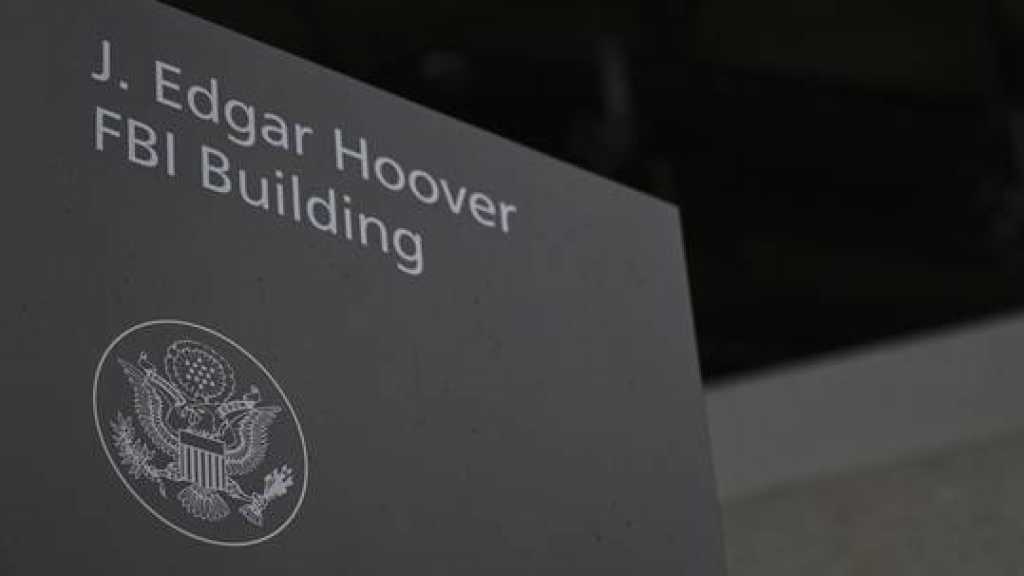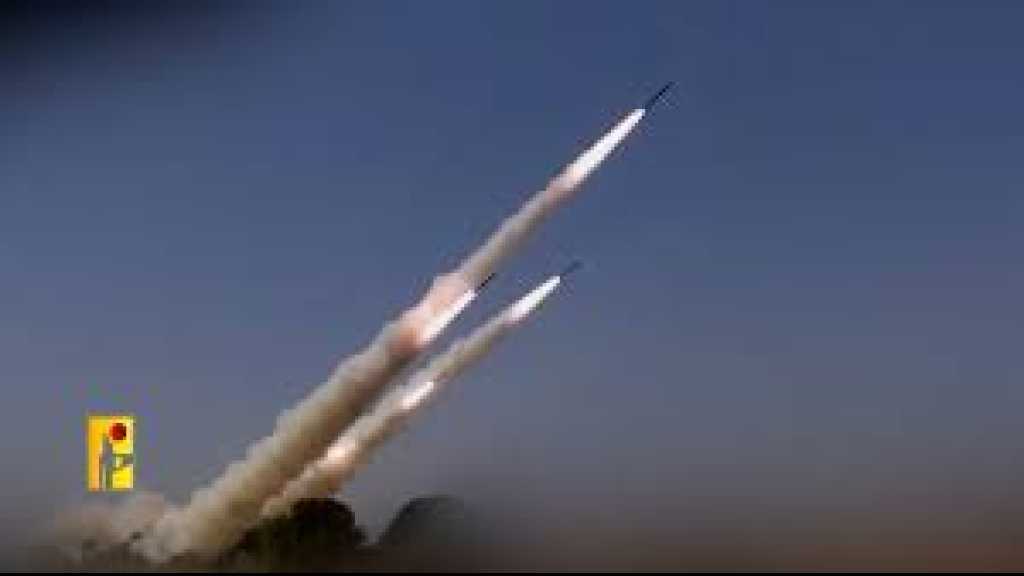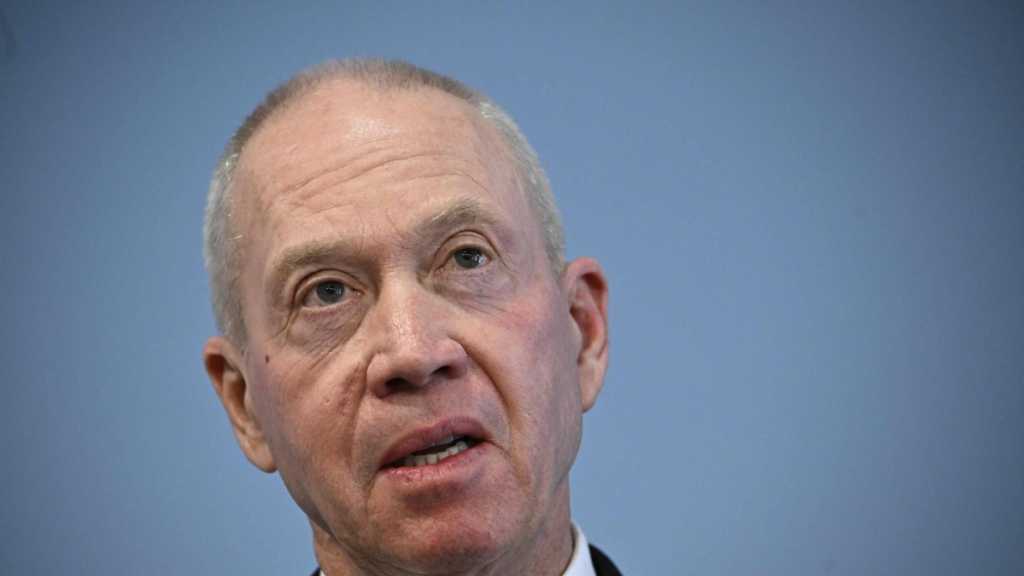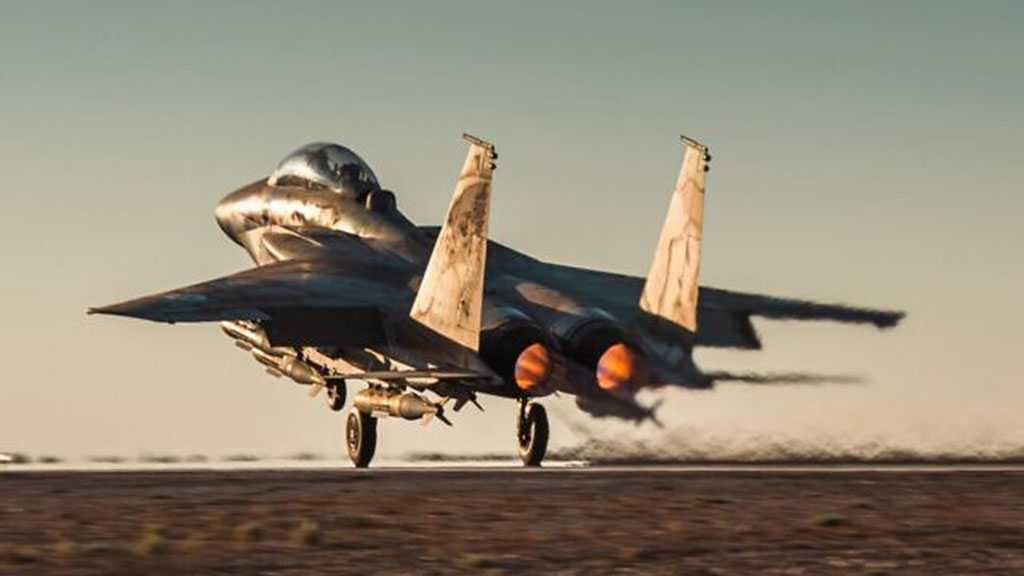
Mullen Meets Netanyahu: Transporting Arms from Syria to Lebanon is Worrying

Mullen Meets Netanyahu: Transporting Arms from Syria to Lebanon is Worrying
Source: "Israel Hume - Mattie Talkfield"
While on a visit to "Israel", the Chairman of the Joint Chiefs of Staff (CJCS), General Michael Mullen met "Israeli" Prime Minister Benjamin Netanyahu yesterday.
Both parts expressed their common worry upon "the arms transportation processes" from Syria to Lebanon that "Hizbullah is carrying out" nowadays upon the bloody events occurring in Syria.
Actually, Mullen arrived in "Israel" two days ago, shortly before the end of his tenure. During the meeting he held with Netanyahu, both parts discussed "the Iranian threat" and "the influence of the State of Ayatollahs" on the recent incidents in the Arab World, in addition to the resulting setbacks on "Israel" and the United States that is solely facing a difficult military battle in Afghanistan and Iraq.
Also, both parts discussed the Syrian situation, whether the bloody confrontations there or "the arms transport" to Lebanon, which "Hizbullah is carrying out". Then they talked about the new Egyptian government and the continuity of arms smuggling from Sinai to the Gaza Strip.
Admiral Mullen was received by the Chief of Staff Committee two days ago, whereby the latter set an honorary banquet attended by high Military officers.
This week, the Military pointed out that through all years of his tenure, Mullen worked on reinforcing the tight relation between both Militaries and on conducting close contacts with his "Israeli" counterparts. During this visit, Mullen farewell the Chief of Staff Committee and the Military commanders who expressed their admiration to him.
Chief of Inner Frontline North Region: "Next War, 400 Missiles Will Hit Haifa"
Source: "Maarif - Eliana Schiffer"
On the fifth-year anniversary of the Second Lebanon War, the Commander of the Inner Frontline North Region, Colonel Anwar Saab, speaks about the preparations for the next war. In an interview with "Maarif's" regional attaché, Zaman Haifa, he unveils that "more than 400 missiles are estimated to hit Haifa next time."
Also, he clarifies the decision to alter the unregistered lands and Carmel tunnels into a public shelter.
Actually, the lack of preparedness and the factor of surprise, which led to many failures during the Second Lebanon War, didn't only exist at the frontline, but also these factors were embodied prominently on the inside: closed or neglected shelters, no fortified hospitals, absence of coordination between the authorities and the security arms, sirens that do not work or get heard in the real time, and a lot of other issues that have clearly exposed a continuous failure in handling the internal issue.
After the Second Lebanon War, one of the important morals for the Military leaders and the "State" is the great emphasis on preparing the internal community, keeping in mind that the next war will basically concentrate on very big coups against the inside; this is something "Israel" hasn't witnessed so far.
Although the number of the Inner Frontline officers has exceeded the logistic formation of the Military in the past years, many more combat-officers have been assigned to handle primary positions since the War. One of those officers is Colonel Anwar Saab, an important officer with a rich warfare past.
Colonel Saab has progressed quickly in the Inner Region, whereby in December 2009, he handled the most critical, important, and difficult region in the "country" - the North Region that includes Haifa City, Krayot, and, of course, the settlements at the confrontation line.
"This Region includes around 123 authorities, which are half of the total local authorities in "Israel". I realized that the issue is related to a very big region, and this is why I wanted the North Region to be separated and Haifa Region to be established.
"After the Carmel Fire Disaster, I was allowed to do this," Colonel Saab reveals. "Nowadays I am building Haifa Region, along with the former chief of the Southern Brigade of the Inner Frontline; he was in charge of Haifa Region."
Once you talk about deriving morals, where does the readiness of the inside lie in parallel with 2006?
"When I was commander of the Inner Frontline Middle Region, a Grad missile was dropped onto Jadra. Two days before the missile was launched, I asked the city president to make brochures that could be distributed to the houses, directing people how to behave in case a missile hit, the way to set fortified places in apartments, and how to prepare children to evacuate the place to a fortified one."
"After the Grad missiles hit Al-Khadira, a father showed up with the brochure in his hand, telling us that his daughter had survived thanks to the brochure directions and the drill they had had. He talked about their behavior before the drill, whereby as any siren blew, his daughter would rush to get the dog out of the house.
"But after the drill, she left the dog, as we had told her, and escaped to the shelter. Her room was demolished, and the dog was killed there."
"This father was about to cry as he spoke to us about it. And this means a lot; it means we shouldn't underestimate all drills we're doing. In the real time, the drill can save lives. We have derived morals, not only have we reflected on the lack of infrastructure, but also we have begun doing drills and preparing information for the audience."
"Smiling, Colonel Saab says, "The northerners are angry with me because I constantly keep on testing the sirens." He adds, "But I want to test if the alarm system and the siren work perfectly, unlike what happened in the Second Lebanon War; where the sirens were generally unheard in many places, so the missiles were dropped there, and people's lives were in danger."
"I prefer to bother people and to skip checking the sirens only on the days of commemorating memories and disasters. Today we have 801 sirens in the entire North Region in comparison with 260 sirens in the Second Lebanon War."
Five years ago, many public shelters were closed and neglected, even in places like Kiryat Shmona. What has changed since that time?
"I need to divide my answer into two parts. In the northern settlements along the entire confrontation line, we have made sure we didn't leave a single shelter without being repaired and making it ready for whatever might happen. We've invested a lot of money in that. We've invested in cities like Haifa and Krayot. So I was saying that the shelters in all cities of the "country" are not the solution."
"Thus, this doesn't solve the problem. So we've set what we call: an authority-fortification plan (Tamar). The authority must make sure it builds clinics and fortified places. Upon what happened in the Second Lebanon War, our purpose is to offer the people whose houses get damaged a place where they can go. In the previous War, that didn't happen. Yet, this time we're preparing shelters in schools that can receive those people, also preparing a residential place for them."
6000 Persons in Carmel Tunnels
In the past two years, especially after the construction of the Carmel tunnels ended, a lot was said about the benefit of hiding there in times of war. Colonel Saab, who was in charge of the committee that examined this issue, reveals the invalidity of this decision: "We've decided that in times of war and necessity, the Carmel tunnels will provide shelter for 6000 persons approximately."
"Not only will the tunnels be made to meet this purpose, but also the area of the unregistered lands in Haifa will. "We're considering the opening of a field hospital in the Carmel tunnels. In spite of this decision that we've made, we prefer to use the Carmel tunnels as a final way out. We've concluded that in case settlements are hit with missiles, it'll be better for citizens to stay home and find a fortified room like the staircase. We're going to evacuate into the tunnels the people whose houses are damaged rather than the ones whose houses remain safe."
As the War ended, a lot was said about incentives and constitutions that would necessitate the construction of fortified places in apartments and in new buildings, in addition to quickening such construction in old houses. Nevertheless, to wish for something is different from reality. Not many owners of old houses have rushed to construct fortified places in their houses.
Furthermore, Colonel Saab admits that "In comparison with other cities, Haifa's situation is still the best, but I see that there hasn't been enough response as respects constructing fortified rooms in apartments. Hereupon, we launched an advertisement campaign, asking every citizen to find a near, fortified place. Unfortunately, all encouragement to construct fortified rooms in apartments hasn't worked; thus, the only choice left was to get all citizens to know their surroundings and choose the most fortified rooms in their houses. We recommend the use of staircases and first floors."
They say that over 400 missiles will hit Haifa during the next war
"I believe this estimation is true. Responsibly, I can tell you that in Krayot and Haifa, there are municipality staffs that deal seriously with this probable scenario. We, too, have reinforced the process of fortification and setting hospitals."
What about the fortification of Ram Bam Hospital?
"As we evacuated wounded people to Ram Bam during the war, a missile hit the place; however, now there's a new plan to construct an underground hospital. Currently, it's not ready, and I don't know how much time it requires."
The whole region is a timed bomb as it contains an ammonia reservoir and the Bazan factories. The issue is about protecting these critical places, so can anything be done?
"I'll reveal something to you: Only a week and a half earlier, the new Inner Frontier Commander, General Ayel Isenberg, and I went to the ammonia reservoir and went on top of the reservoir, the necessity of the protection of which they keep talking about. We organized a tour over the place, and frankly, I want to say that the issue is related to the ammonia reservoir, which ranks among the most fortified reservoirs in the world."
"I don't know whether the cement roof they're asking us to build is going to solve the problem in case a missile hits the reservoir. I must say that the protection system there is excellent. If a certain area there is stricken, then a separation procedure is going to separate between the stricken area and the other areas."
"The General and I sat there, and we placed some ammonia in a little bowl and inhaled it. We reflected on all dangers and discussed them, too. I know all the present dangers in the factories in the Gulf Region. To clarify this, I am not suggesting there is danger; I believe they are exaggerating and propagating irrational fear. The matter isn't like what they're describing - as if Haifa were about to explode. We've written a quite good number of permanent orders for the combaters, and we've executed a good number of drills for all factories in the Gulf so as to reduce the size of the future damage."
The question is: Do the factories generally work in accordance with your directions? You've found that those factories haven't been fortified well enough after the War, so are they generally fortified? Or is it that you have no general censorship on this matter?
"We're visiting the place continuously; it's obvious that we do not own the process of imposing power, but the "Israeli" police do. However, I can say that after the Bazan Accident - when they didn't allow the matter to leak outside of the factory - the issue is more comfortable now."
Do you feel more comfortable?
"My mission requires that I always be occupied and worried because the moment I stop worrying, I won't be doing my job. Still, the actions they've done to protect these places have made the places seven times as fortified as they were in 2006."
Recently a decision has been made, stating that the "Iron Dome Arsenal" would be set in several parts of Haifa. Colonel Saab agrees on this and explains that "Israel" owns the best protection layers."
"We know how to protect the strategic places of Haifa City, which I prefer to offer no details about. Yet, I can say that Haifa has an ultimate priority as regards the protection issue, including "the Iron Dome Arsenal". In Haifa, there is an effective protection rather than negative protection."
What's the most significant step the Inner Frontier Command has made after the War?
"Basically, during the tenure of General Yaïr Gollen in the recent three years, an atmosphere of close cooperation between the local authorities and the "Israeli" Military units has been established, in addition to a very advanced alarm system."
"Everything depends on the new law of the Inner Frontline, which grants the Inner Region Command the authority to commandeer every "Israeli" land during the war. This means that the police forces, firefighters, and the red Star of David will be subjected to the orders of the Inner Frontline Command; as such we worked during "Operation Cast Lead". Also, there exists the Middle Region Command, which is working excellently."
Which point hasn't been handled properly?
"The whole issue of the protective masks against non-traditional arms; I hope that in two years, masks will get distributed to everybody; so far, this hasn't taken place, and we haven't got a detailed map of all fortified places of the authorities."
Quite frankly, Colonel Saab criticized the parents who prefer paying school fees to buying their children protective masks against the non-traditional arms. Colonel Saab has briefed his words as such: "A civilian must handle the responsibility of his/her family. We have to be constantly ready for anything. I don't wish to see what happened in one of the southern settlements; as a missile was dropped near a house, and the fortified room of the house was closed. Why? Because the father had documents that he saved in the room; therefore, the civilians, too, must handle their own responsibilities and protect themselves."
Source: moqawama.org



